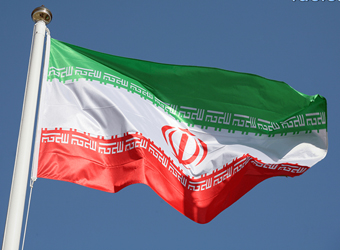Tehran vowed Tuesday to stand alongside Baghdad and Ankara against the outcome of an independence referendum staged by Iraqi Kurdish authorities in northern Iraq, a day after thousands of Iranian Kurds marched backing the vote.
State media also quoted an army commander as saying that new missile systems were installed on Tuesday, a day after the referendum, in western provinces that border Iraqi Kurdish areas to “firmly respond to any invasion”.
Iran, Iraq and Turkey – countries with Kurdish minorities – have all denounced the referendum as a threat to the stability of a region already beset by conflict, while the United States has expressed similar disquiet.
Ali Akbar Velayati, the top adviser to Iran’s Supreme Leader Ayatollah Ali Khamenei, stepped up the pressure as the Iraqi government ruled out talks on possible secession for Kurdish-held northern Iraq and Turkey threatened sanctions.
“The Iraqi people won’t stand silent. Iran and Turkey and other regional countries won’t stand silent and will stand against this abhorrent deviation,” Velayati was quoted as saying by ISNA news agency. “The Muslim nations will not allow the creation of a second Israel.”
Velayati did not say what action Iran had in mind. However, the country’s media have compared the Kurds’ desire for a homeland with the 1948 creation of Israel. The Islamic republic regards the Jewish state as its greatest enemy along with the United States.
Initial referendum results indicated 72 percent of eligible voters had taken part and an overwhelming majority, possibly over 90 percent, had said “yes”, Kurdish TV channel Rudaw said. Final results are expected by Wednesday.
Undaunted by years of official suppression of dissent, residents in a number of mainly Kurdish cities in northwestern Iran danced in circles as night fell on Monday, chanting slogans praising Kurdish nationalist movements.
Videos posted on social media showed drivers beeping their car horns in celebration and people clapping in the cities of Marivan and Baneh. Many wore masks so as not to be identified by the security forces.
About 30 million ethnic Kurds are scattered across the region but have no country of their own. With 8 to 10 million living in Iran, Tehran fears pressure for secession will grow among a minority which has a long history of struggle for its political rights.
A strong police presence tried to control the celebrating crowd. There were reports of clashes between the demonstrators and security forces in the cities of Mahabad and Sanandaj.
In Sanandaj the crowd waved the flag of Kurdistan, a banned symbol for the Kurds’ desire for independence.
“This referendum will encourage Iranian Kurds to be more determined to seek their rights,” said Zaribar, a Marivan resident and member of the Democratic Party of Iranian Kurdistan, a secular armed group which launches periodic attacks in Iran.
“This referendum was not a threat to Iraq’s neighbours, but it’s a starting point to resolve the issues of Kurds, especially in Iran,” added Zaribar, who declined to give his full name.
Tehran announced a ban on direct flights to and from Iraqi Kurdistan on Sunday at the request of the central government in Baghdad and called for a land blockade of the autonomous region by all neighbouring countries.
Media gave no further details of the newly-installed missile systems. However, Iranian fighter jets flew in a show of force over western provinces of Iran as part of a military drill, including the Kurdish cities of Sardasht and Oshnavieh.
Bumpy Road
Although many Iranian Kurds would like to copy the referendum model, the road to autonomy or independence would be more difficult under the Islamic Republic’s theocratic rule and its military might.
The Revolutionary Guards have put down unrest in Kurdish areas for decades, and the hardline judiciary has sentenced many activists to long jail terms or death.
Iran sent Guards Commander Qassem Soleimani to northern Iraq last week in a failed final effort to persuade the Kurdistan regional government from holding the referendum.
One Kurd from Baneh, who gave his name as Arbaba, said he was exhilarated “from the bottom of my heart for victory in the referendum”. However, he was worried it would increase pressure on Iranian Kurds to prevent them from going down the same path. “The Iranian regime will militarise the Kurdish areas even more,” Arbaba said.
For the Iranian state the referendum of the Kurds’ demand for state of their own was a “Zionist plot” aimed at bringing instability to the region.
“This view that a wandering scattered nation would only find peace if they find a homeland, was the core philosophy for creation of Israel,” wrote the Kayhan, a hardline newspaper closely associated with Supreme Leader.
Israel has backed Kurdish independence. It has maintained discreet military, intelligence and business ties with Kurds since the 1960s, viewing the minority as a buffer against shared adversaries.
Source: Reuters
